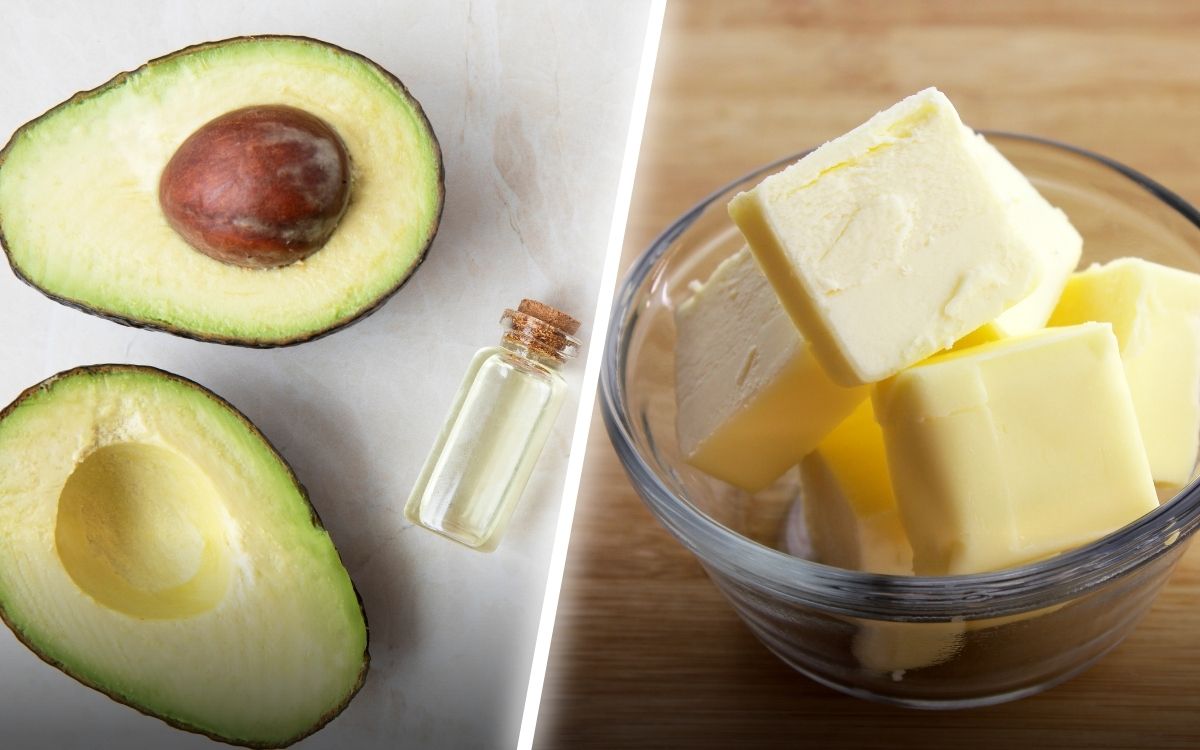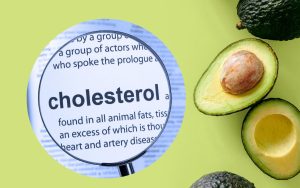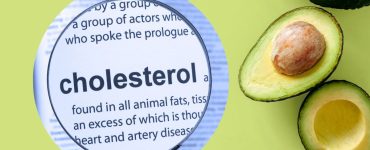In recent years, avocados have gained immense popularity as a versatile and nutritious option for various recipes. However, butter has long been a staple in culinary traditions and adds a rich flavor to many dishes. As health-conscious individuals, it’s important to consider the nutritional aspects of these two ingredients.

In this blog post, we will delve into the debate of avocado vs. butter and explore which option is healthier for cooking. By understanding their nutritional profiles and how they affect our bodies, you’ll be better equipped to make informed choices in the kitchen.
Understanding Avocados
Avocados have become increasingly popular due to their versatility and nutritional value. Understanding the composition and benefits of avocados can help us make informed choices when it comes to cooking.
Nutritional Profile of Avocados
Avocados are rich in healthy fats, making them a unique fruit in terms of their nutritional composition. They contain monounsaturated fats, which are considered heart-healthy and beneficial for overall health. These fats help to reduce bad cholesterol levels and promote good cholesterol.
Avocados are also an excellent source of dietary fiber, providing essential nutrients for a healthy digestive system. Additionally, avocados are packed with vitamins and minerals such as vitamin K, vitamin E, vitamin C, potassium, and folate, which play vital roles in maintaining various bodily functions.
Health Benefits of Avocados
The consumption of avocados has been associated with several health benefits. Their high content of monounsaturated fats, fiber, and various nutrients contributes to these advantages. Avocados have been linked to improved heart health, thanks to their ability to lower LDL (bad) cholesterol levels and reduce the risk of cardiovascular diseases.
The presence of fiber aids in digestion and promotes a healthy gut by supporting regular bowel movements and nourishing beneficial gut bacteria. Avocados have also been recognized for their potential role in weight management, as the healthy fats and fiber they contain help increase satiety and reduce cravings.
Culinary Uses and Versatility
Beyond their nutritional value, avocados offer exceptional culinary versatility. They can be used in various recipes, both savory and sweet. The smooth and creamy texture of avocados makes them an ideal ingredient for spreads, dips, and dressings.
They can be mashed to create guacamole, sliced for salads, or used as a topping for toast and sandwiches. Avocado’s natural creaminess also makes it a popular substitute for butter in baking, providing a healthier alternative while maintaining moisture and richness in baked goods.
Additionally, avocado oil, derived from the fruit, is commonly used for sautéing and roasting, offering a high smoke point and a mild flavor.
Butter’s Nutritional Composition
Butter has been a longstanding staple in culinary traditions, adding rich flavor and texture to a wide range of dishes. To understand its impact on health and cooking, it’s essential to examine the nutritional composition of butter.

Overview of Butter’s Nutritional Content
Butter primarily consists of milk fat, which gives it its characteristic creamy texture. It is rich in saturated fats, which are solid at room temperature. Alongside fats, butter contains small amounts of protein, cholesterol, and water. Vitamins and minerals present in butter include vitamin A, vitamin D, vitamin E, vitamin K, and trace amounts of calcium.
High Saturated Fat Content
One notable aspect of butter’s nutritional profile is its high saturated fat content. Saturated fats have long been associated with potential negative effects on cardiovascular health. They have been linked to increased levels of LDL (bad) cholesterol in the blood, which can contribute to the development of heart disease when consumed in excess. It’s important to note that while saturated fats have been vilified in the past, recent research has suggested a more nuanced understanding of their impact on health.
Considerations for Moderation
Due to its high saturated fat content, it is generally recommended to consume butter in moderation. While small amounts of saturated fats can be a part of a balanced diet, excessive intake may increase the risk of cardiovascular issues.
It is advised to consider individual dietary needs and consult with healthcare professionals when establishing an appropriate intake of saturated fats. Moreover, people with certain health conditions, such as high cholesterol or heart disease, may need to be more cautious in their consumption of butter.
Avocado vs. Butter: Comparing Fats
When comparing avocados and butter, one crucial aspect to consider is the types of fats they contain. Avocados are known for their monounsaturated fats, while butter is predominantly composed of saturated fats. Let’s delve into the differences between these fats and their impact on health.
Different Types of Fats in Avocados and Butter
Avocados are a rich source of monounsaturated fats, which are considered heart-healthy fats. These fats have been associated with various health benefits, including reducing the risk of heart disease, lowering bad cholesterol levels, and improving insulin sensitivity. Monounsaturated fats also provide a good source of energy and aid in the absorption of fat-soluble vitamins.
In contrast, butter contains primarily saturated fats. Saturated fats are typically solid at room temperature and have been linked to an increased risk of heart disease when consumed in excessive amounts.
They can raise LDL (bad) cholesterol levels in the blood, contributing to the development of cardiovascular issues. However, recent research has suggested that the relationship between saturated fats and health is more complex than previously thought, and further studies are needed to fully understand their impact.
Effects of Monounsaturated Fats on Health
The monounsaturated fats found in avocados have shown numerous health benefits. They have been associated with improved heart health by helping to reduce LDL cholesterol levels and increase levels of HDL (good) cholesterol.
Monounsaturated fats also possess anti-inflammatory properties and may contribute to reduced inflammation in the body. Furthermore, they can aid in controlling blood sugar levels, making them beneficial for individuals with diabetes or insulin resistance.
Understanding Saturated Fats’ Impact on Health
Saturated fats, which are prevalent in butter, have been traditionally linked to an increased risk of heart disease and elevated cholesterol levels. However, recent research has questioned the direct association between saturated fats and cardiovascular issues.
It is important to note that the overall dietary context, as well as individual factors such as genetics and lifestyle, play a significant role in the impact of saturated fats on health. Nonetheless, moderation in the consumption of saturated fats is generally recommended as part of a balanced diet.
Cooking and Culinary Applications
Both avocados and butter have distinct roles in cooking, contributing to flavor, texture, and overall culinary experience. Exploring their respective uses and applications can help determine their suitability for different recipes.
Avocado as a Cooking Ingredient
Avocados offer a wide range of possibilities when it comes to cooking. They can be mashed and used as a spread or filling in sandwiches, wraps, and tacos. The creamy texture of avocados makes them an ideal ingredient for creating dips, such as guacamole or avocado hummus.
Additionally, avocados can be sliced, cubed, or pureed to enhance the taste and nutritional value of salads, soups, and smoothies. In baking, avocados can be used as a substitute for butter, providing a healthier fat alternative while imparting moisture and richness to cakes, muffins, and cookies.

Butter’s Role in Cooking
Butter is widely cherished for its flavor-enhancing properties in cooking. Its rich, creamy texture adds depth and indulgence to various dishes. Butter is commonly used for sautéing vegetables, searing meats, and frying eggs. It is also a key ingredient in creating flavorful sauces, gravies, and pan sauces that complement meats, poultry, and seafood.
In baking, butter plays a crucial role in providing tenderness, moisture, and a distinct flavor to pastries, cookies, and pie crusts. Its unique characteristics contribute to the desirable texture and taste of many traditional baked goods.
Factors to Consider When Using Butter in Cooking
While butter adds flavor and richness to dishes, it is important to consider a few factors when incorporating it into cooking. Due to its relatively low smoke point, butter can easily burn when exposed to high heat. This may affect the taste and appearance of the dish.
Clarified butter or ghee, which is butter with the milk solids removed, can be a suitable alternative for high-heat cooking. Additionally, portion control is essential when using butter, as it is calorie-dense and high in saturated fats. Measuring and using it in moderation ensures a balanced approach to its inclusion in recipes.
Making Informed Choices
When it comes to cooking, making informed choices about the ingredients we use is crucial for maintaining a healthy lifestyle. In the avocado vs. butter debate, understanding individual dietary needs, balancing fat intake, and incorporating variety are essential factors to consider.
Assessing Individual Dietary Needs
Every individual has unique dietary needs and considerations. Factors such as age, activity level, overall health, and personal preferences play a role in determining the ideal balance of fats in one’s diet. Consulting with healthcare professionals, such as registered dietitians or nutritionists, can provide valuable guidance in assessing individual dietary requirements and making appropriate choices.
Considering Overall Fat Intake
While avocados offer healthful monounsaturated fats and butter contains higher amounts of saturated fats, it is important to consider the overall fat intake in one’s diet. Balancing the types and quantities of fats consumed is key. Incorporating a variety of fat sources, such as avocados, nuts, seeds, and oils rich in unsaturated fats, can contribute to a well-rounded and nutritious diet.
Balancing Fats from Different Sources
Rather than focusing solely on avocados or butter, it is beneficial to incorporate a range of healthy fat sources into cooking and meal planning. This approach ensures a diverse intake of essential nutrients while avoiding excessive reliance on any single ingredient. Experimenting with alternative cooking oils, such as olive oil or avocado oil, can also provide a healthier alternative to butter in various recipes.
Incorporating Avocados in Cooking
Avocados offer a multitude of possibilities when it comes to cooking. From using mashed avocados as a spread or substitute for butter in baking to incorporating slices or diced avocados in salads, sandwiches, and wraps, there are numerous creative ways to include avocados in everyday meals. Exploring avocado-based recipes and experimenting with different culinary techniques can enhance both the nutritional value and flavor of dishes.
Moderation and Balance in Cooking Choices
While avocados offer nutritional benefits, it is important to consume them in moderation and as part of a balanced diet. Portion control and mindful eating play a significant role in maintaining overall health. Balancing the intake of healthy fats with other essential nutrients, such as lean proteins, whole grains, fruits, and vegetables, creates a well-rounded approach to cooking and nourishment.
Conclusion
In the avocado vs. butter debate, both ingredients have their merits, but when it comes to health, avocados emerge as the winner. Avocados offer a range of essential nutrients, heart-healthy fats, and numerous health benefits.
Their versatility and ability to enhance the flavor and texture of various dishes make them an excellent choice for cooking. While butter adds richness and flavor to meals, it contains higher levels of saturated fats and lacks the same nutritional value as avocados.









